Digital art has become a part of daily life with the rising popularity of many forms of creative and imaginative media. For some people, it even goes beyond being a hobby as they make a career out of it. As they say, all your dreams can come true if you have the courage and hard work to pursue them! With that, we were honored with the opportunity to have an interview with Kamochiruu, a US-based artist, best known for her ornate and whimsical style of drawings.
Kamochiruu, or Kamo for short, thoughtfully shared her passionate origin story and art journey with us. We got to know how she honed her craft to become the remarkable artist she is today, and how she came to be recognized for her dark, nostalgic, and original character designs, storylike illustrations, and just recently, her eye-catching Vtuber/Live 2D Model art. While being personally familiar with the struggles that self-taught artists go through, Kamochiruu also created an anime-inspired online art class with CLASS101 (which we tried out) with the goal of guiding fellow aspiring artists towards a smoother art journey.
So without further ado, here is our interview and peek into the creative mind of the digital artist, Kamochiruu!
On Drawing Beginnings and Art Influences
Q: How long have you been creating art? What sparked the love for drawing?
A: From what those around me have told me. I was creating art ever since I could pick up a crayon as a baby, so I guess the interest started young! Thinking back, I honestly can’t remember a day where art wasn’t at least in the back of my mind somewhere.
I delved deeper into art once I discovered the internet (I was a sheltered child so I found out about it rather late). This introduced me to new media such as cartoons, games, anime, and manga, which definitely sparked my interest. My little kid brain was amazed by it all. I wanted to create cool things like that too! I drew and posted my art throughout late elementary school, middle school, and high school, but didn’t find success until the last few years. I went from DeviantArt (unsuccessful) to Paigeeworld (somewhat successful) to Instagram (peak success probably) to Twitter (currently my happy medium).
Q: Is there a specific anime (or manga) that played a part in making your art look like it does today?
A: It’s impossible to choose just one, so the top three series that made the biggest influence on the way my art looks are Kuroshitsuji (Black Butler), Black Rock Shooter, and Death Note. These were the first anime/mangas I was introduced to as a kid, and the themes, characters, designs, and overall aesthetics are still some of my favorites. If I hadn’t discovered these I doubt my art would look like it does today.
A: How long was it until you found your art style?
Q: I consider myself to be always open to trying out new ideas, so I still haven’t found a concrete style I’d want to stick with forever yet! I’m currently still working towards that goal. When viewing others’ artwork I make the habit of gradually taking in bits and pieces of the art styles that interest me and try to implement those techniques into my own. By doing this I hope to be able to achieve an art style I can be 100% content with eventually. I personally don’t mind how long it takes; the process of growth and change is something I’ve learned to enjoy nearly as much as the finished artwork itself.
That being said, when I was younger I started off trying to imitate what I thought would be popular, what would be the most pleasing to most people. Unfortunately, by doing this I was never able to draw things that I personally enjoyed, only what I thought others would be interested in. Starting in 2018, I set myself the goal of customizing an art style to suit my own tastes. If you love your own art, you’ll eventually find people that love what you do too!
Q: A lot of your art has unique, quirky, and lovely characters! Is there a particular aspect that influences you the most? What would you say were your biggest artistic influences?
A: Though my art style itself has an anime-inspired look to it, the content I choose to enjoy during my personal time is rarely anime or manga. Because of this, I find that I’ve gained the most inspiration for my characters, designs, and artwork from broad areas like classic fairy tales, mythology, books, history, and horror.
Classic fairy tales like “The Little Mermaid” and Greek mythological stories such as Icarus and Medusa were definitely the root of my obsession with tragic and otherworldly characters. Books I read as a child like East of Eden and Coraline play a huge role as well. Generally, nostalgia factors a lot into what I create, since it’s fun to bring my own twist to well-known concepts.
The fashion and cultural elements from different historical eras (victorian, baroque, Chinese dynasties, etc.) are also fascinating because I can remix historical ideas with modern ones to bring a fresh take to my artwork. Lastly, horror is by far the biggest influence for all my characters; each one I create is based on a different deep-rooted fear. Dread-inducing things like parasites, loss of autonomy, possession, inevitable fate, etc., I could go on and on! I’m able to harness that fear and translate it into passion, then into artwork.
Overall, I aim at designing dark characters and concepts I like that are rarely found elsewhere, thus fulfilling my niche interests myself rather than waiting for someone else to create it for me. With art it’s possible to create anything the depths of your imagination can conjure up, so why bother with overdone characters when it’s possible to bring to life something absurdly unique on your canvas?
On Managing the Art Process
Q: What kind of characters do you like drawing the most?
A: My favorite kinds of characters to draw are definitely humanoid, feminine, or androgynous leaning ones with unrealistic physical traits, unique fashion, or dark personalities. Cool clothing such as lolita or gothic styles, as well as unrealistic physical traits like wings, horns, and funky eyes, are the best!
I get really hyped when clients commission me to draw characters like these. Though my ultimate guilty pleasure is drawing characters who are morally grey, villains, or anti-heroes. These ones with darker personalities often come bundled with darker concepts, looks, angst, basically all that melodramatic goodness that is so so fun to translate into my art style.
Q: What kind of equipment do you use as a digital artist? Do you prefer “traditional” drawing or digital? Why?
A: My initial introduction to digital art was drawing on MS paint with my laptop trackpad and doodling little things with my finger on my tiny iPhone 5 screen. A good while later, for my 12th birthday, I got my very first drawing tablet: a Wacom Intuos pen and Touch Small. I used this until I finally got my first screen tablet in 2018. It was a Wacom Cintiq Pro 13 that I won from an art contest on Instagram. That same Cintiq is still the main drawing tablet I use for my art today. With my Cintiq, laptop, mouse, and keyboard, I am unstoppable!
While I do like traditional art (I used mediums like colored pencil, Copic, and watercolor), the love of my life will forever be digital drawing. Drawing digitally makes things like sketching, editing, fixing mistakes, and sharing my art so much easier and more convenient than traditional. The entire process is cleaner and faster as well since there’s no need to clean up materials, wait for the canvas to dry, or buy new supplies when they run out. Digital is much more forgiving as well since it’s easier to ruin or lose a piece of paper than it is to completely destroy an easily-duplicated digital art file. I’ve been told that digital art isn’t “real art” (mainly by people who, no surprise, are not artistic), which I wholeheartedly disagree with.
Q: How long (on average) does it take you to finish a drawing?
A: It’s difficult to give an accurate average since finishing a drawing can take me hours, days, months, or even years (for works in progress I forget about or don’t have time to finish right away). It depends on my schedule, mood, or the type of drawing. Though under peak circumstances, my ideal timeframe for finishing a normal illustration (from brainstorming all the way to final edits, including breaks) is around a week.
Q: What do you find most challenging to draw?
A: What I find most challenging to draw are things I don’t often get the chance to draw. I don’t draw a lot of backgrounds or complex perspectives, so I definitely need to dedicate more time to practice those. I also struggle with mechanical objects that require structural knowledge, such as cars or buildings.
Q: What part of your art process do you enjoy the most? And which one do you struggle with the most?
A: My favorite part of the art process is the shading stage. Getting to render the details and see the sketch come to life is very rewarding. In contrast, I find that the initial sketching stage gives me the most trouble. It takes me a good while to come up with a concept, composition, and color scheme I can be happy with. Without that solid foundation sketch, it’s very hard to create a satisfying end result.
Q: Do you ever get an art block? How do you overcome them?
A: Strangely, I get art blocks a lot less often now that I consider art more as a career rather than a hobby. I think this change of mindset helps me distance my current feelings away from my art process, so when drawing for work I am not dragged down by mood swings, feelings of inadequacy, or perfectionist tendencies. I guess that may sound like a bad thing because art is normally associated with passion, but I find that the art process goes along a lot smoother when I think of drawing as a normal job rather than something that must have a deeper meaning.
I do still get art blocks, but usually only when making personal art of my original characters. To reinspire me, I like to take a break from drawing for a couple of days or so just to admire other people’s artwork, whether it be through drawings, music, or movies. While doing this I try to view the art through the eyes of a non-artist, just appreciating the overall artwork without feeling the urge to compare it to my own. I often become overwhelmed or desensitized to anime art, so distancing myself from anime-style media altogether for a few days also helps me return to drawing with an open mind. It sounds counterintuitive, but it works for me. Another option I take to overcome art block while still remaining productive is drawing fanart! Comfort characters like Hatsune Miku or Stocking Anarchy are always my go-to.
Q: You always put a lot of details into your art! It’s very expressive and vibrant. How do you keep yourself inspired?
A: My motto is “when in doubt, idk (I don’t know), add more!”
Truthfully, I have a very hard time creating mental images of what I want a drawing to look like beforehand, so I rely on resources like google or Pinterest to gather inspiration for small details, accessories, objects, or even expressions to include in my artwork.
Q: Did you study formally or are you self-taught?
A: I am self-taught! I haven’t studied art formally aside from some elective art classes in middle and high school. I figure out how to draw and do things myself the good ol’ trial and error way. I do sometimes wish I chose to get an art degree or at least take some formal art classes, but I’m currently in college for an entirely different (very boring and un-art-y) major. When I see my fellow artists studying art formally I honestly do get a bit jealous. Learning fundamentals and networking through a formal institution is definitely beneficial, but being a self-taught artist is nothing to be ashamed of!
On Becoming an Art Instructor at CLASS101
Q: What made you decide to create a class for aspiring artists?
A: I’ve always had an urge to share my art process and techniques with aspiring artists since I realized some may struggle with understanding how to achieve certain results, or where to even start. A lot of people have asked me about how I shade, design, or come up with compositions, but I didn’t have a structured way of teaching that information. When the CLASS101 team reached out to me proposing the idea to create an art class, I saw it as the perfect chance to share what I’ve learned over years in an organized way.
Q: What did you have in mind when you created the syllabus?
A: I tried to model the syllabus after my own thought process and [the] artistic process that I go through when creating characters and illustrations. Teaching the art basics first, then how to brainstorm ideas, sketch compositions and colors, render and shade, add final effects, edits, and more.
I hope that structuring things this way can help guide others through their own art process in a structured way. It’s easy to want to skip the seemingly-boring brainstorming process and jump directly into achieving the end result, but for beginners, figuring out all the steps it takes to actually get to that end result can be challenging. The syllabus teaches the step-by-step of my art process, and students can use it as a basis to create their own process that suits them best.
Q: What has been your experience with Class101 and the students who took your class there?
A: The CLASS101 team has been nothing short of wonderful to me. I owe most of the success of my art class to their assistance and guidance. I would have never gotten the chance to create my own art class otherwise. I think it’s a super helpful platform that allows artists to connect and share their knowledge with those who want to learn from them. It’s a bit different from a normal art class available at a college since here you are learning the techniques from artists with the exact style you’re interested in.
My art class students are some of the most hard-working people I’ve met. It’s an honor to see their artistic growth after each mission, as well as all the amazing character and drawing ideas they create! There are students of all ages, careers, and knowledge levels. Wherever you are in life, it’s never too early or late to learn to draw things you enjoy.
On Reposting Art and Being Internet Famous
Q: Do you allow your followers to repost your art (with a credit)? Why?
A: While I don’t prohibit reposts of my art, I don’t necessarily enjoy seeing them if the reposter didn’t ask my permission to do so beforehand. I think it’s much more supportive to retweet, share, or link to the original artist’s post rather than repost the art, since that way the artist can get the interactions on their own account instead. However, I find reposting to be acceptable if it’s a client posting an artwork they commissioned, or if the original artist has given permission or encourages others to repost (always with credit of course).
Q: Was it difficult to gain a decently sized Twitter following as an artist?
A: Gaining a following isn’t necessarily the hard part. Good art and content usually always lead to a sizable following. When my art was rough as a beginner I had little to no followers, but as I improved over time the numbers have gone up. Building a following with art is about playing the long game; it normally isn’t going to happen overnight or even after a few years. It grows as your skills grow.
The real difficulty lies in trying to maintain relevance and pleasing the algorithm. Website algorithms place a high value on posting high-quality art very often on a consistent basis along with constant daily interactions, which just isn’t possible for most working artists. It’s necessary to find that ideal balanced schedule of working, drawing, posting, interactions, personal life, hobbies, and even leave some extra wiggle room in case of emergencies or surprises. I haven’t found my balance yet, but am hoping to eventually!
On Character Design and 2D Modeling
Q: How did you get into 2D modeling? How is it different from traditional commissions?
A: I got into drawing 2D Live2D models for Vtubers pretty recently. I wasn’t too familiar with Vtubers until clients began contacting me asking to commission models. I was shocked by the amount of interest I was getting, so I decided it was a good opportunity to learn how to make them.
Working with Vtubers has definitely been life-changing career-wise for me. It allows me to make a livable income, meet wonderful new people, and network with those I would never have gotten to know otherwise. Making 2D models is pretty similar to drawing a normal plain full-body character drawing. One difference, however, is models require tons of layer separation, which can be unintuitive to beginners. Though once the basics are understood, then drawing model art gets very formulaic (which I enjoy a lot, but I know some artists find it boring and tedious).
Another difference is model commissions require the artist, client, and rigger to work alongside one another for a longer period of time than with a normal illustration commission. This usually results in a closer relationship between all parties involved. Getting to see my artwork move and be used as a Vtuber’s avatar makes all the hard work and long hours worth it 110%.
On Dreams and Best Illustrations
Q: What is the one art project you hope to work on in the future?
A: My ultimate dream and goal is to have my artwork or design made into an anime figure. One of my hobbies is collecting anime figures, which was one of the things that got me interested in drawing in this style in the first place. Being able to display and see others display my art in a 3D form like that would be incredible!
Q: What do you feel is your best illustration, and why?
A: It’s tough to judge my own illustrations since I always think whatever current one I happen to be drawing at that time will be my best, but once I finish it I find aspects I’d like to improve on, so I start a new drawing and that cycle continues. My biggest competition and critic is myself, which is a good thing!
That being said, I currently think this drawing of my original character Aeden is pretty neat! (Though it also happens to be my most recent drawing at the time of typing this). He is a favorite OC (Original Character) of mine, and the technique, composition, and concept for the illustration were very therapeutic to work on. I used a loose, painterly, no-lineart method for this, which is different from the structured method I normally rely on.
Q: Lastly, why Kamochiruu? Is there a story behind the name?
A: I created the name on a whim pretty early on and haven’t been able to come up with anything better since then, so “Kamochiruu” it is. My artwork began to gain popularity under this name, so I thought it would be too confusing to change it.
The word “Kamo”, which is my art alias I prefer to go by online, is the combination of my name “Cami” and the word “Kami” combined with the first two letters “mo” in “mochi; this is also where the “mochi” part of “ka-mochi-ruu” comes from as well.
Mini fun fact: I’m not even the biggest fan of mochi. The remaining “ruu” part was added on at the end because the name “kamochi” was already taken by another user online at that time.
Less-mini fun fact: I’ve never said “Kamochiruu” out loud before so I haven’t actually considered how it would be pronounced. Everyone who’s said my name has had slightly different pronunciations for it and I think it’s hilarious. Whether it be “Kamo-chiruu”, Ka-mochi-ruu”, “kamochi-ruu”, or “kamoch_iruu”, it’s all valid!
And there you go folks! That marks the end of our interview. You can follow Kamochiruu on Twitter and Instagram where she often posts her art pieces, sketches, and everything about her current and upcoming projects. Visit Kamochiruu’s website for more information.
We would like to thank CLASS101 and Kamochiruu again for this interview and for access to the wonderful art we posted.

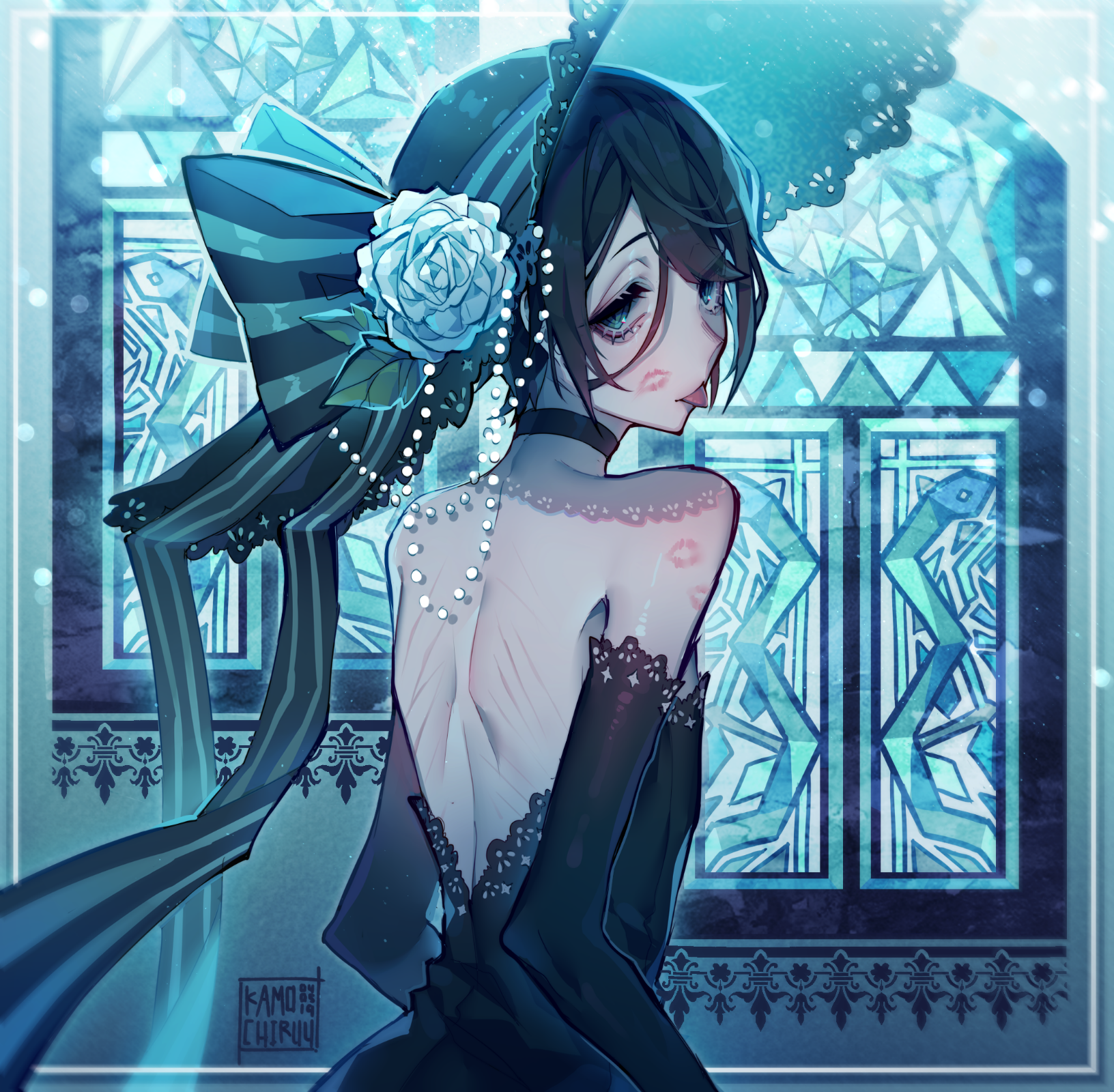
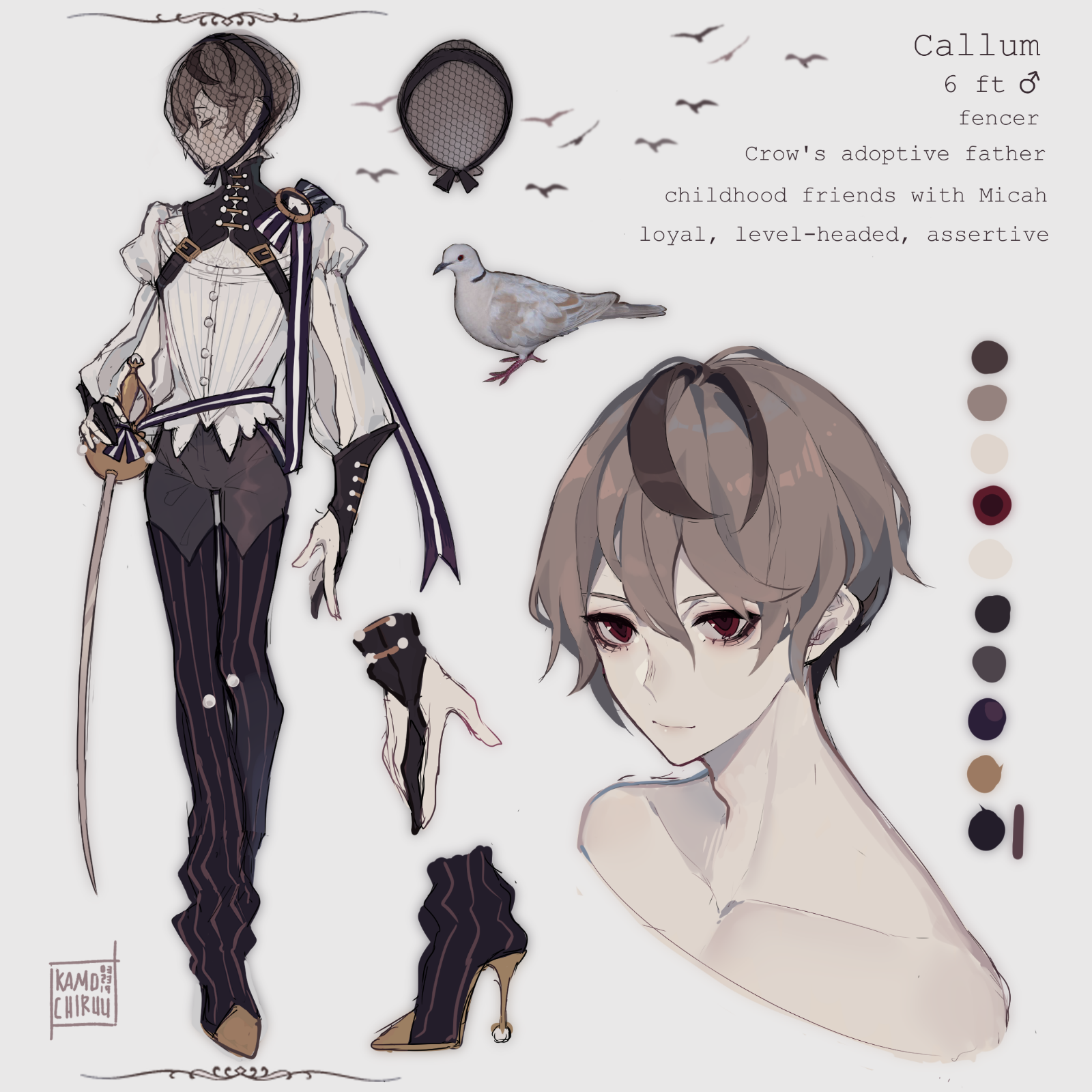
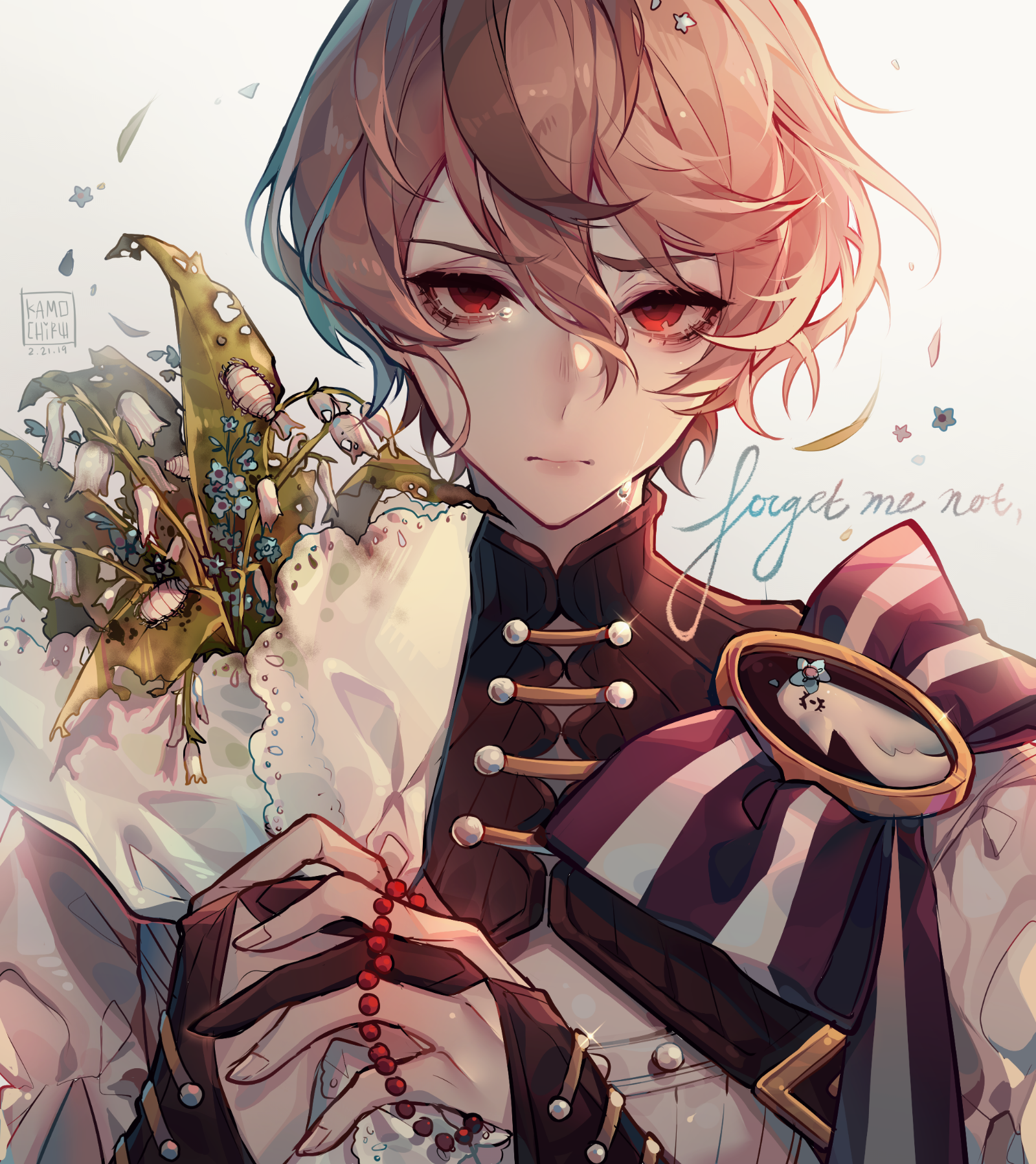
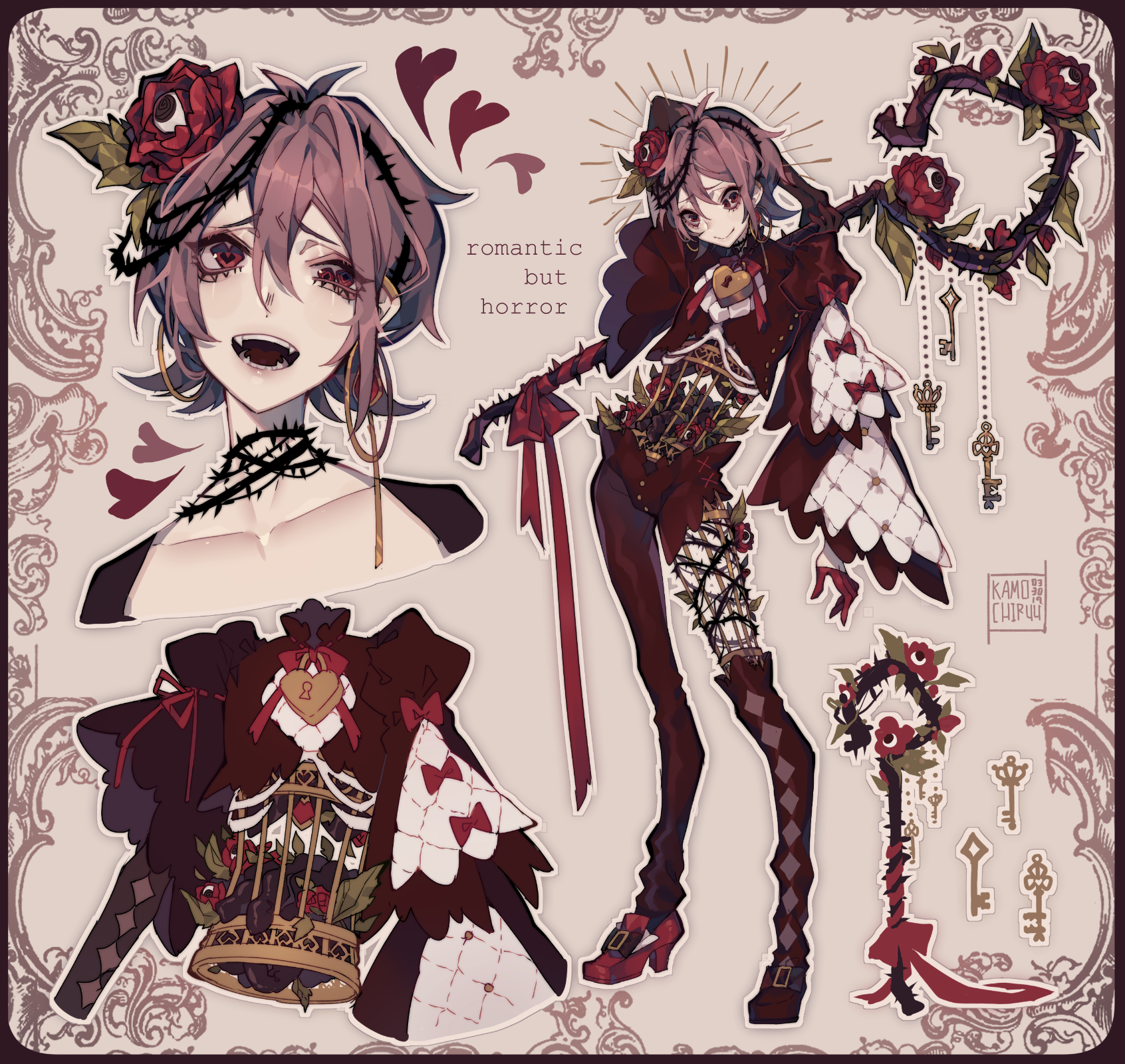
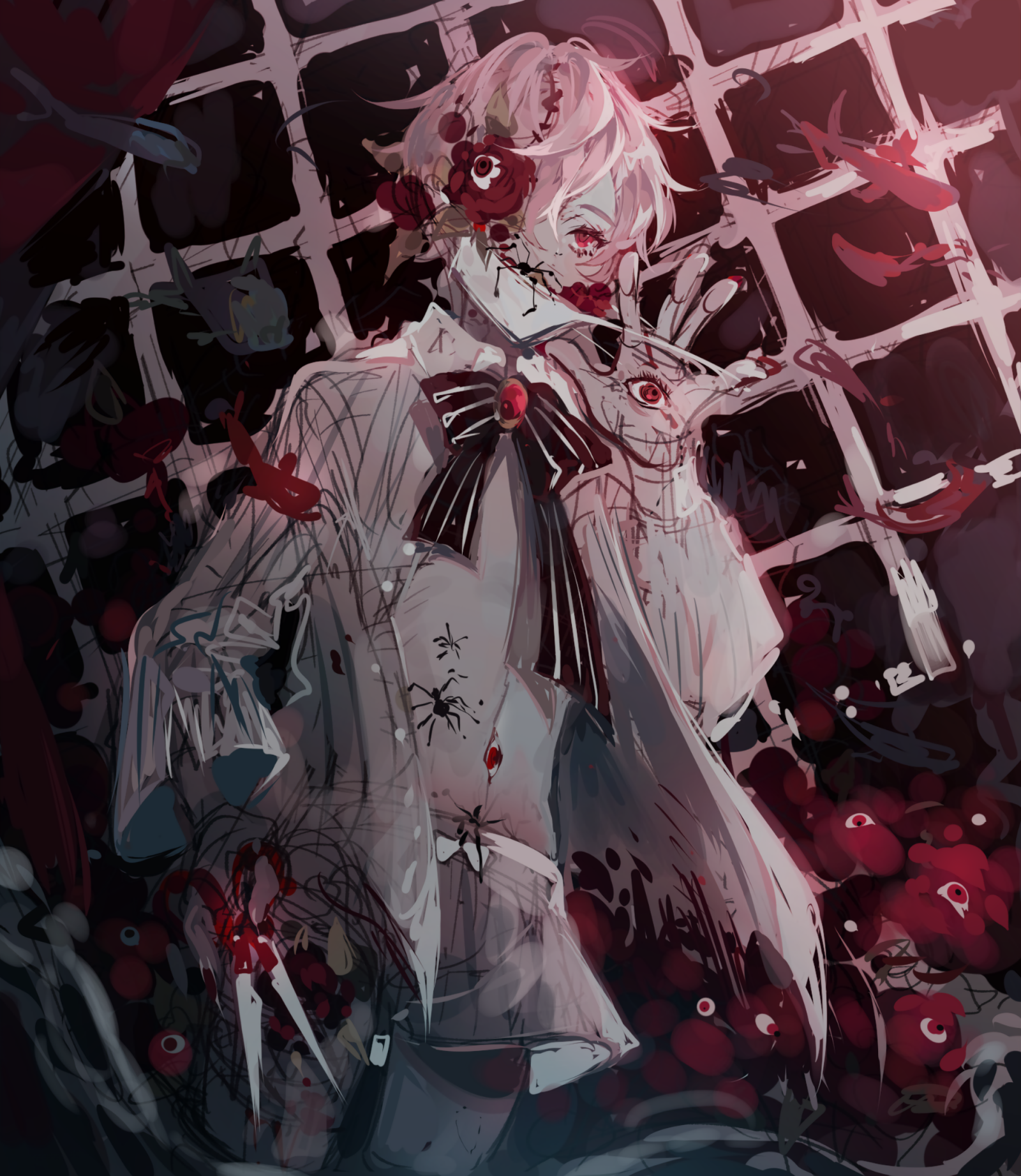
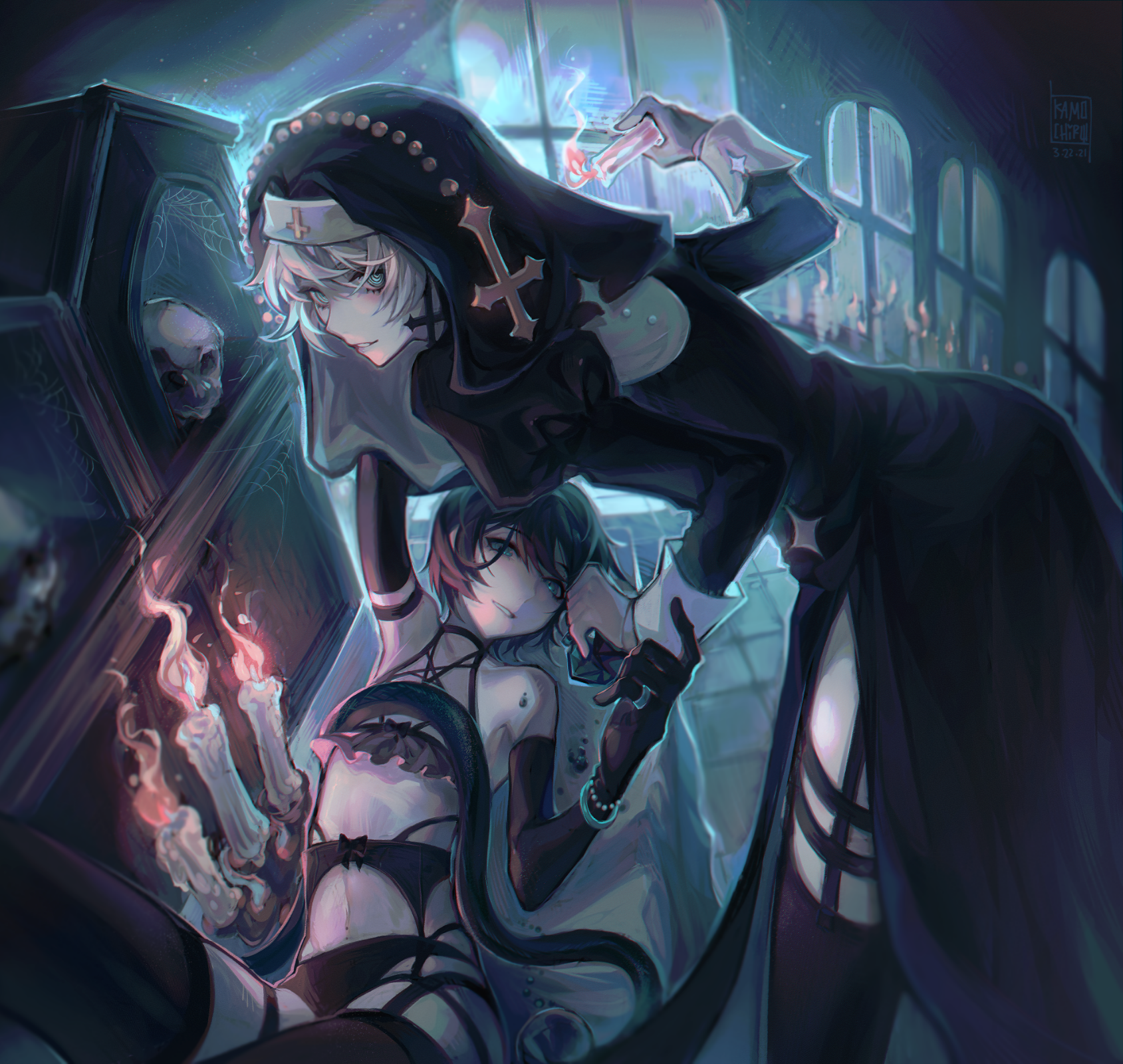
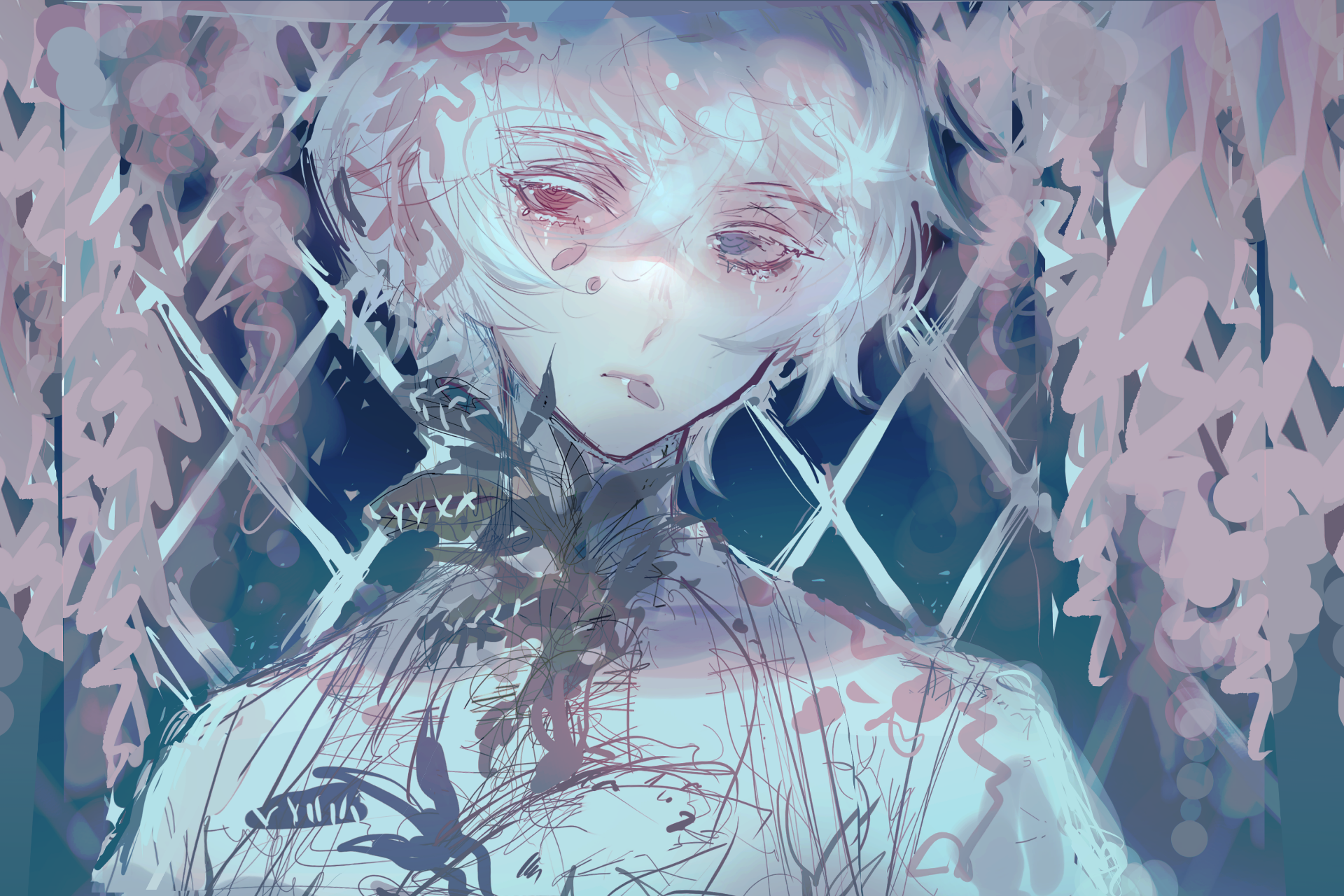
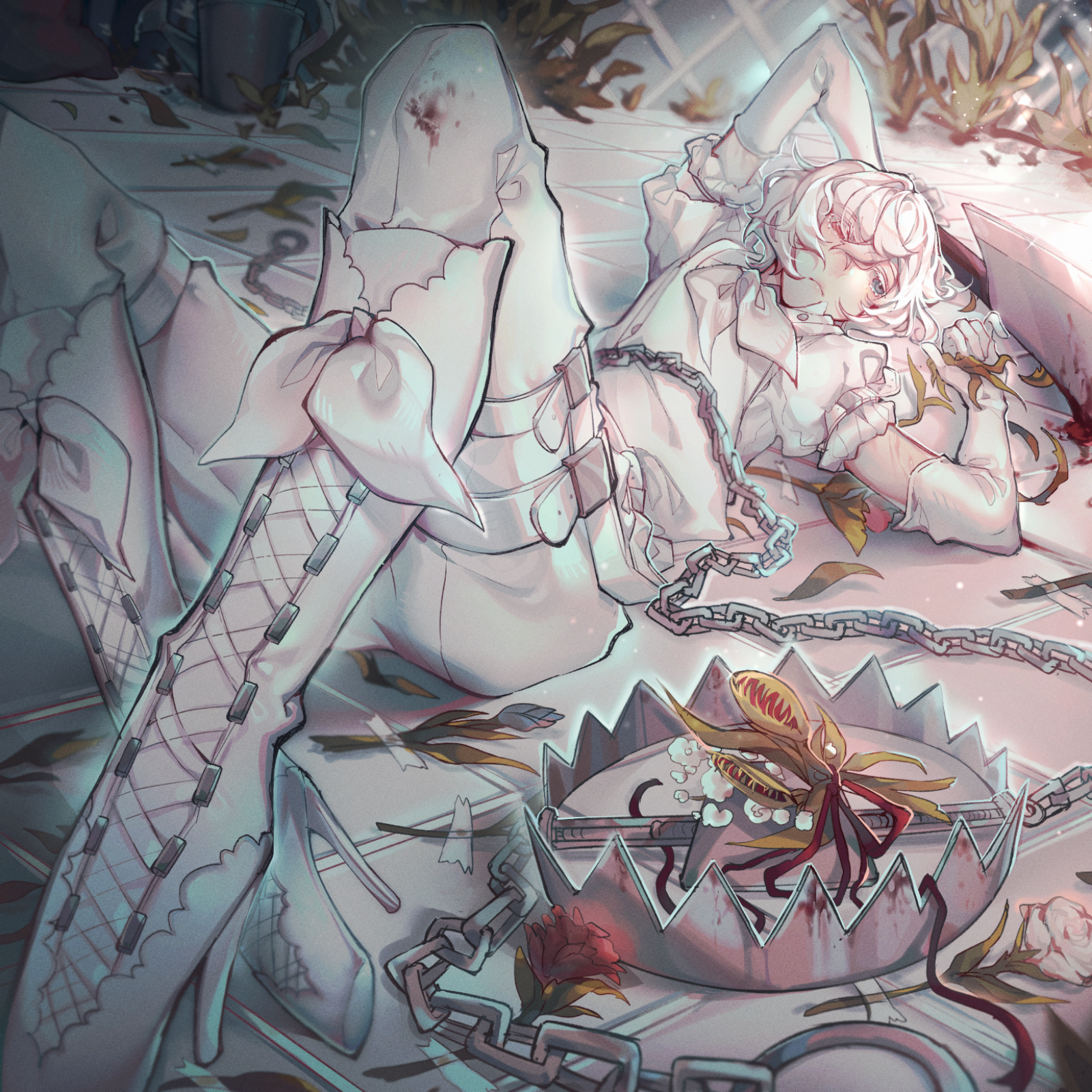
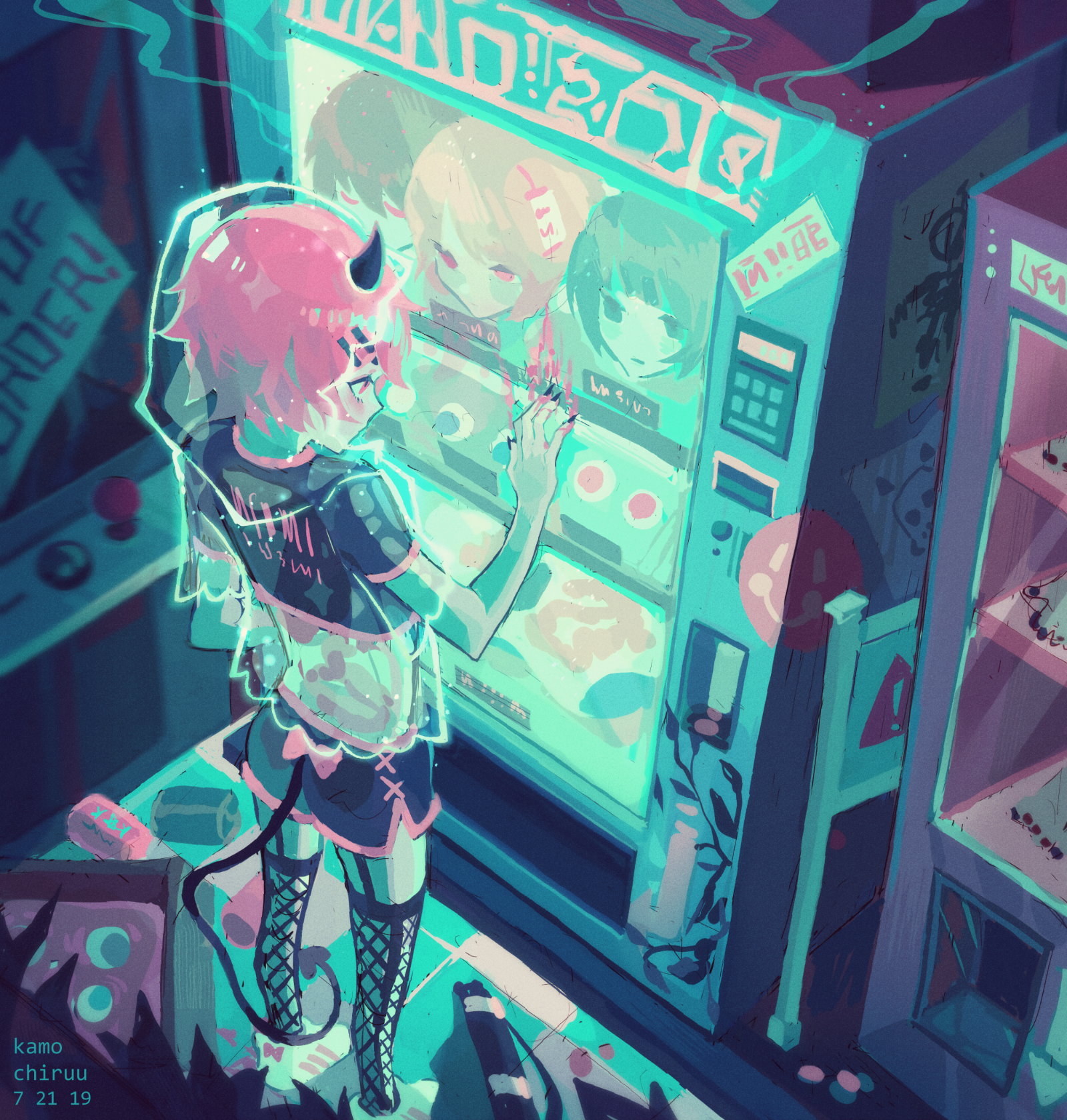
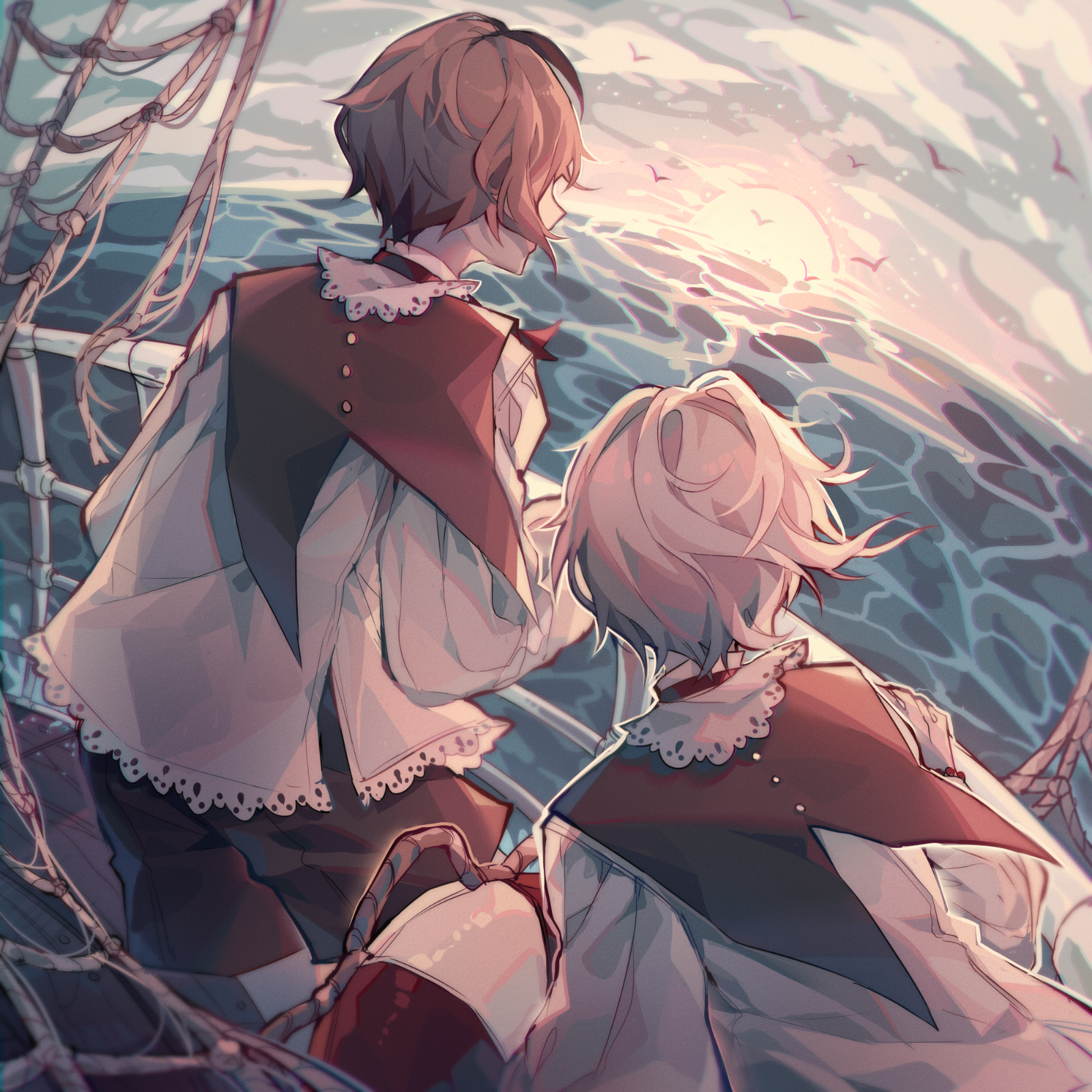
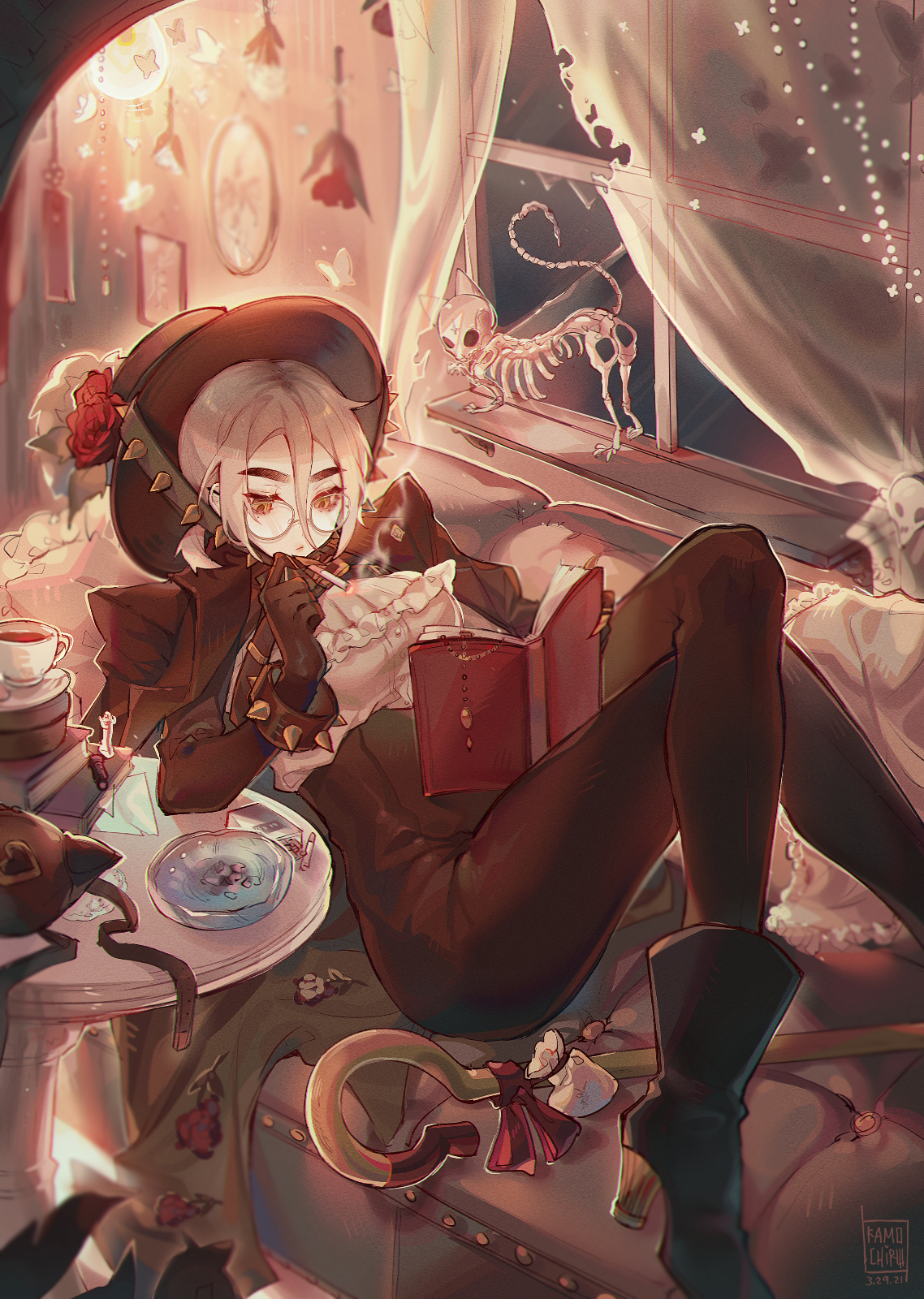
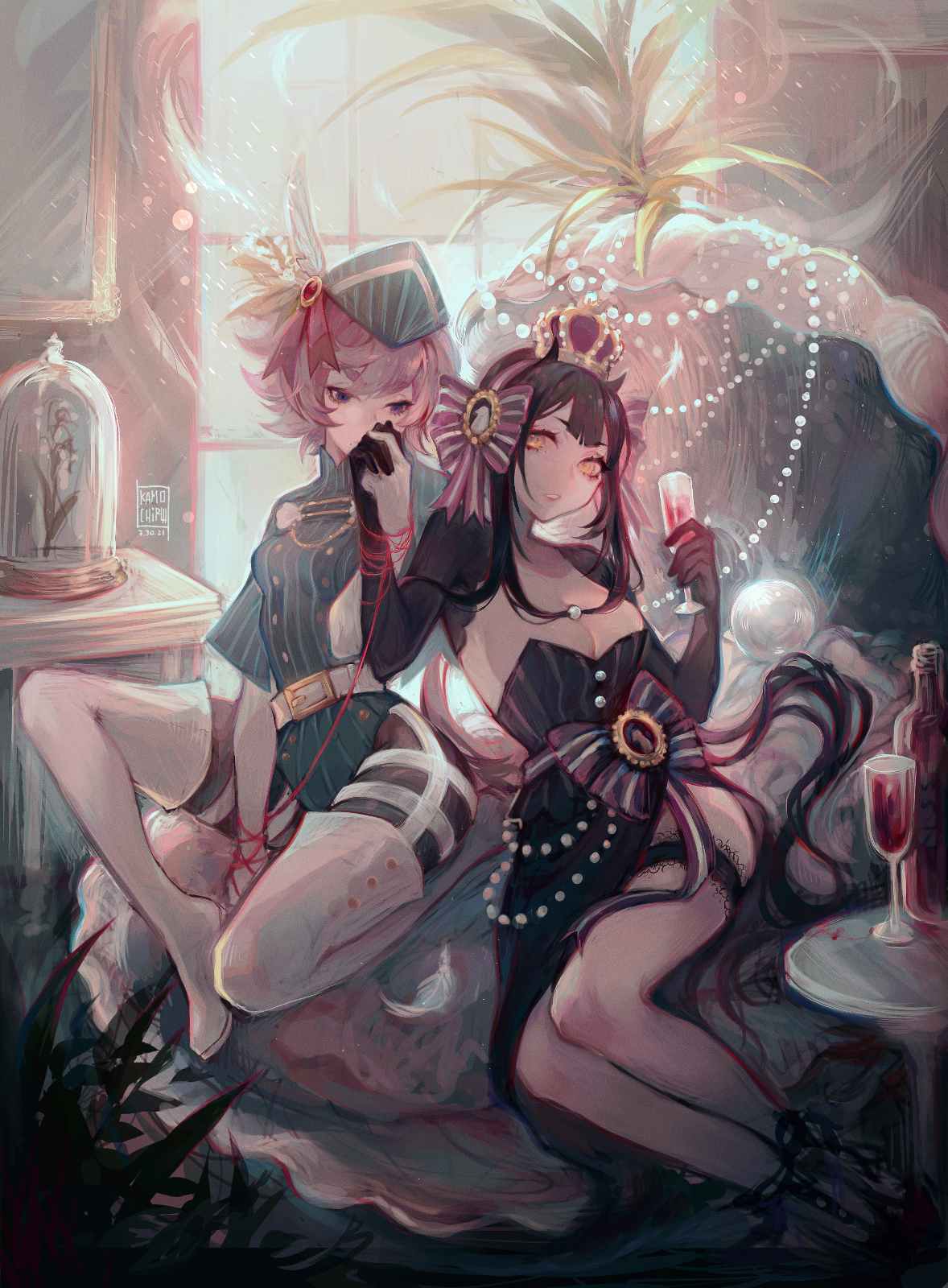
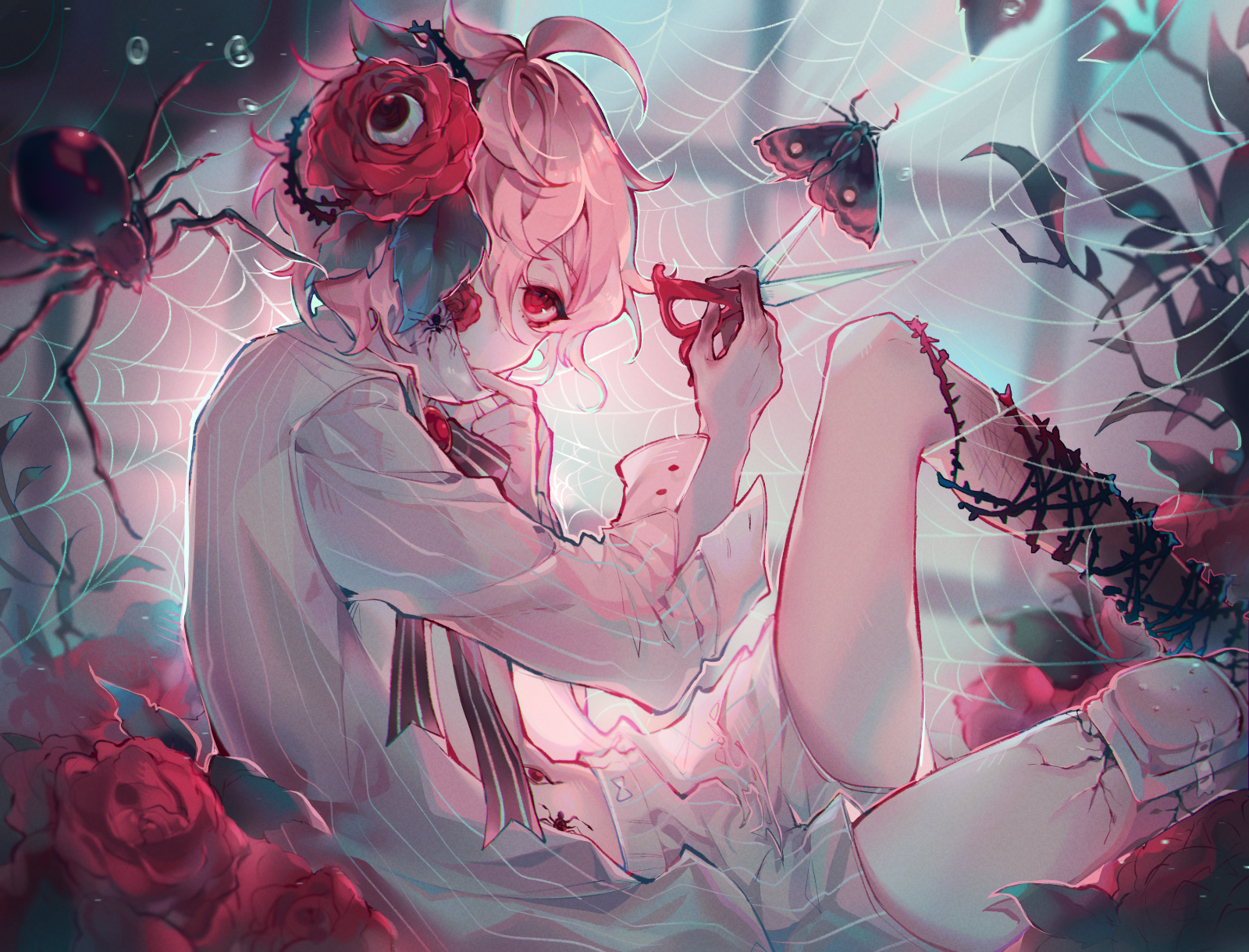
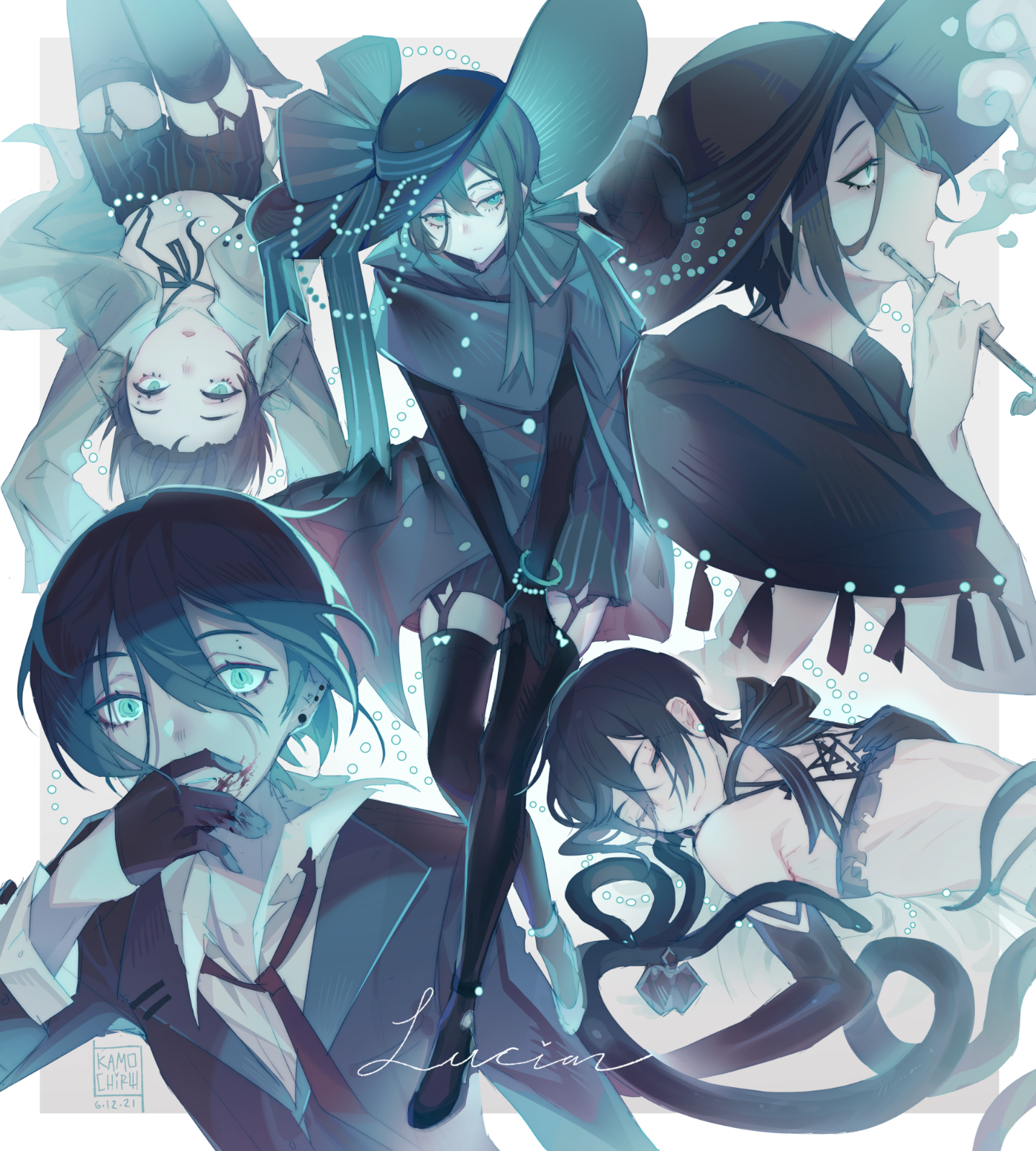
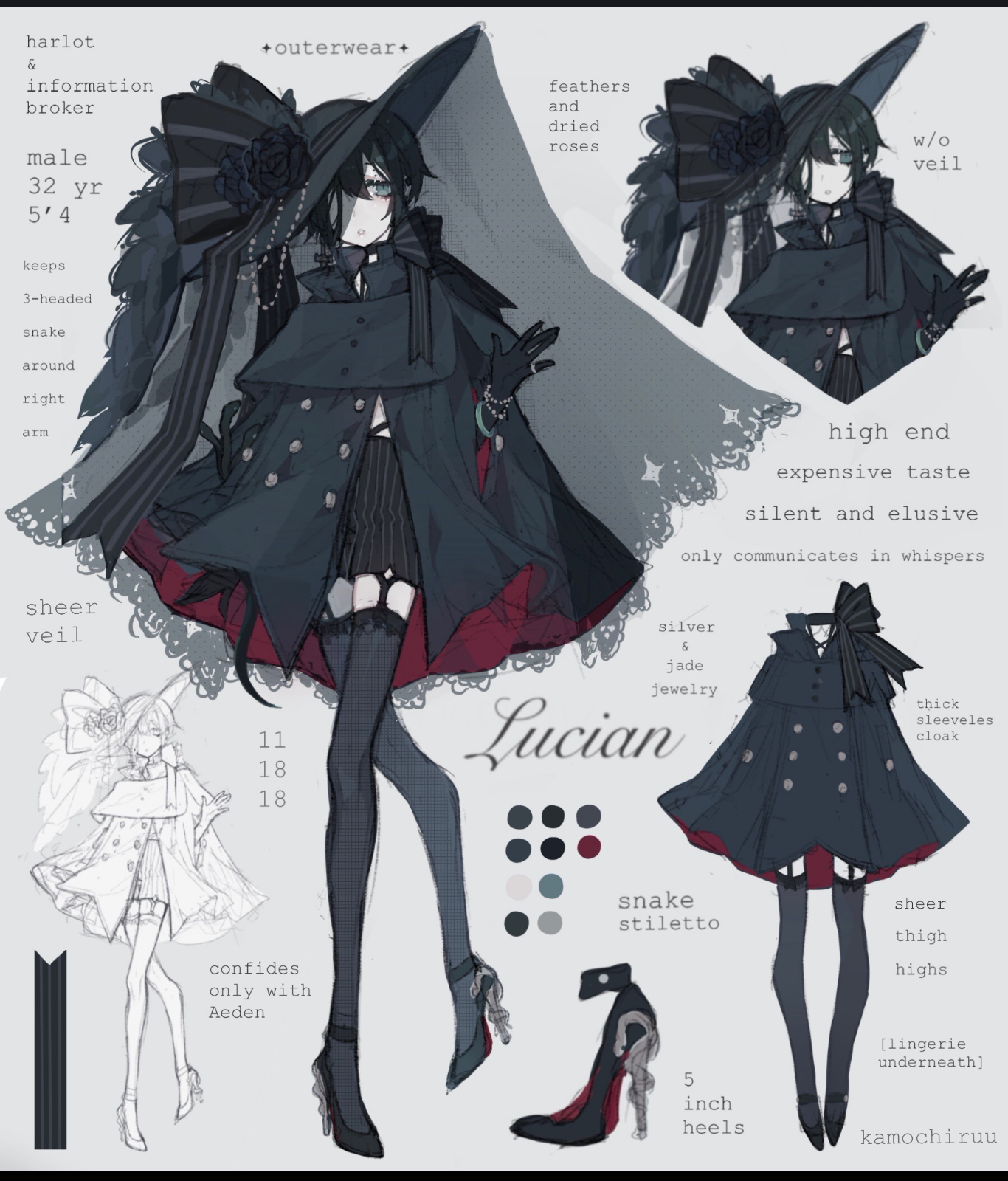
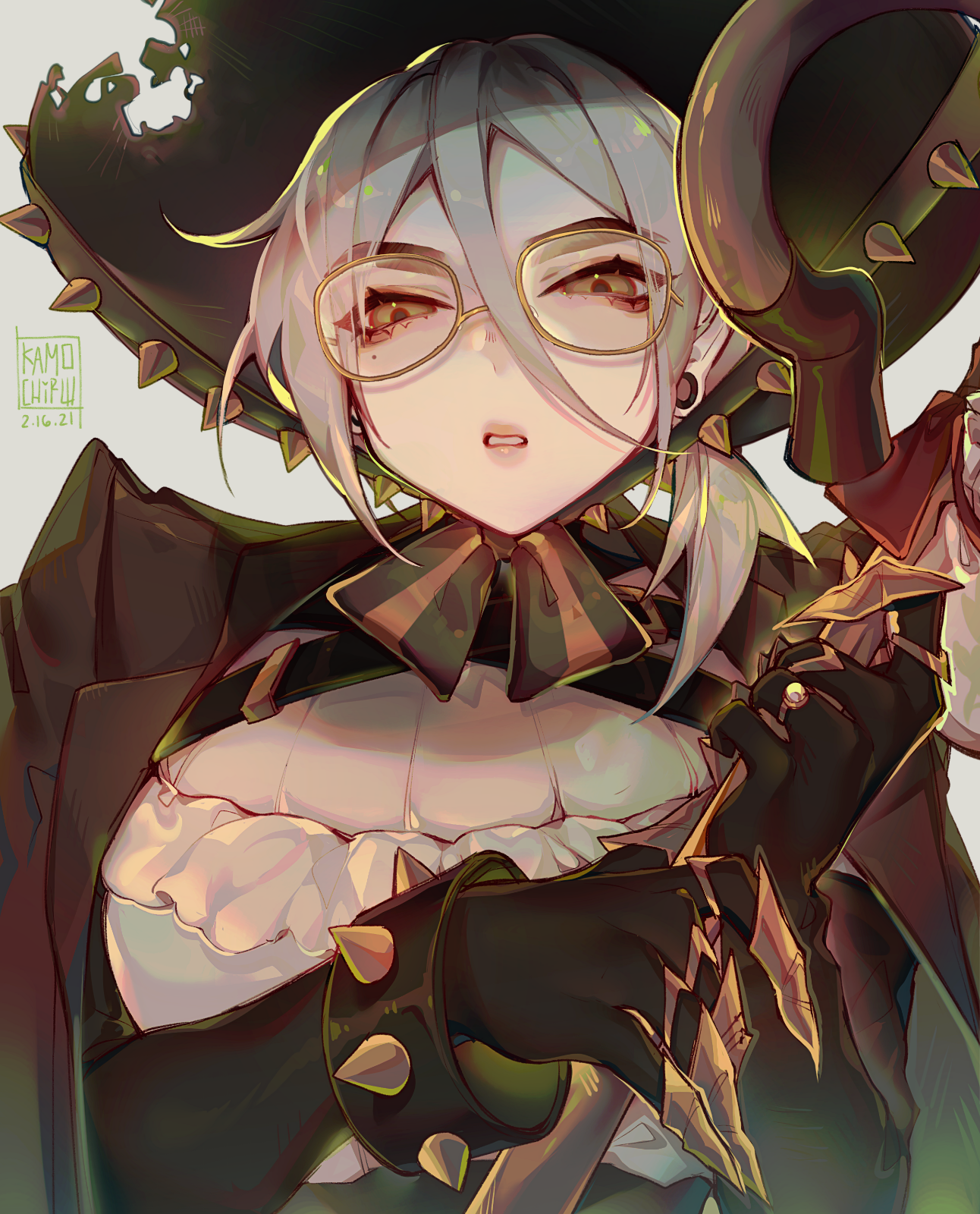
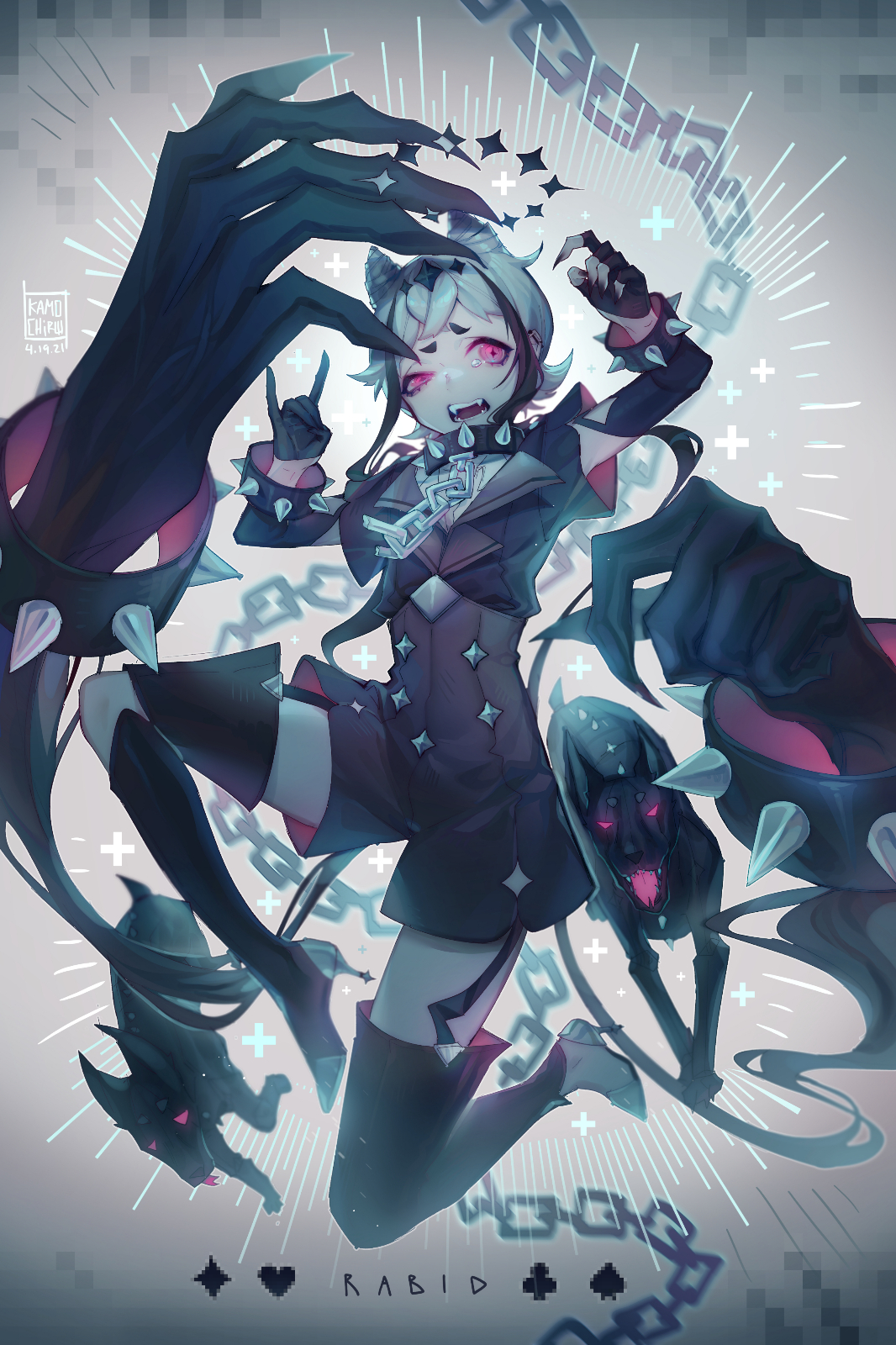
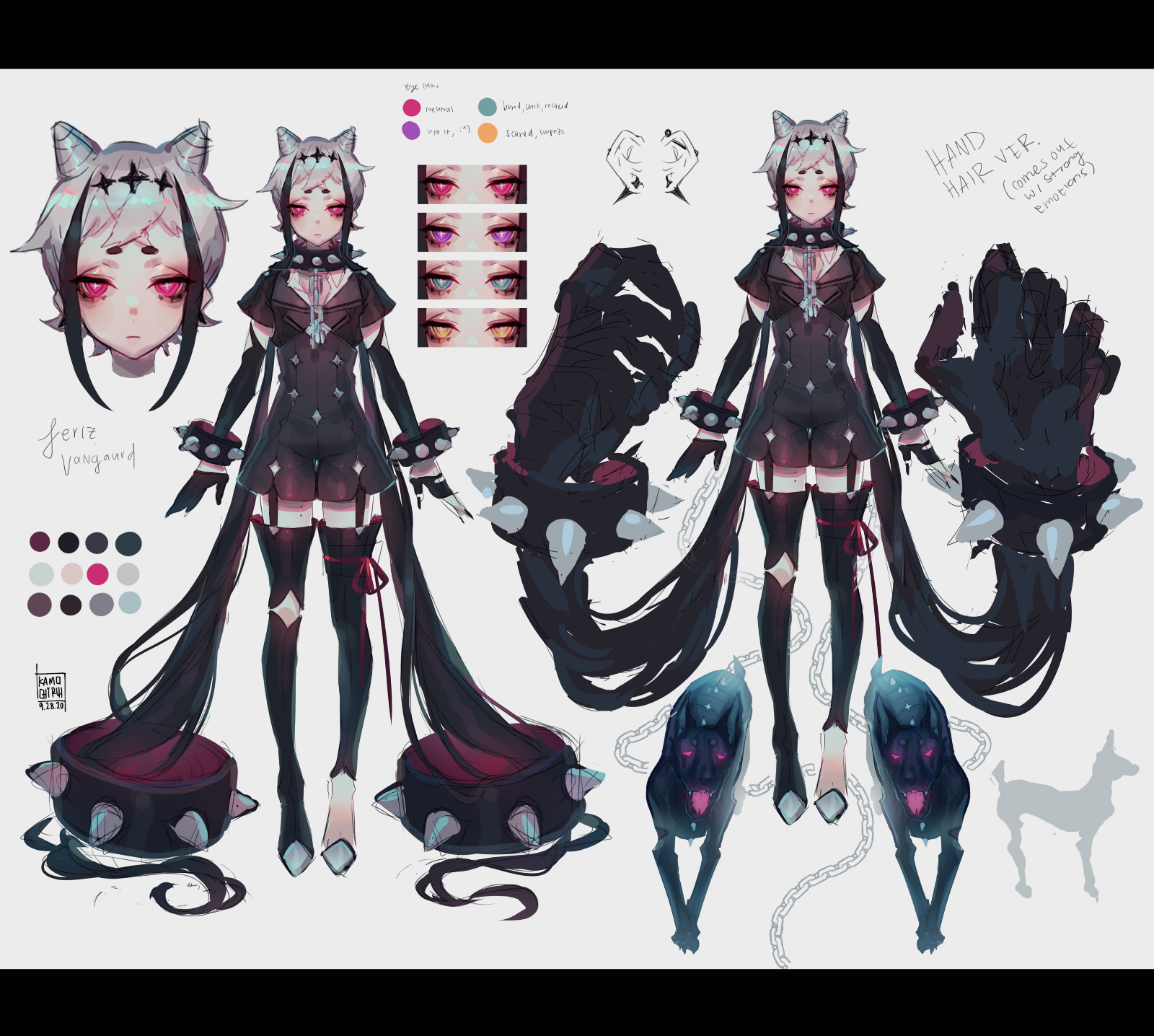
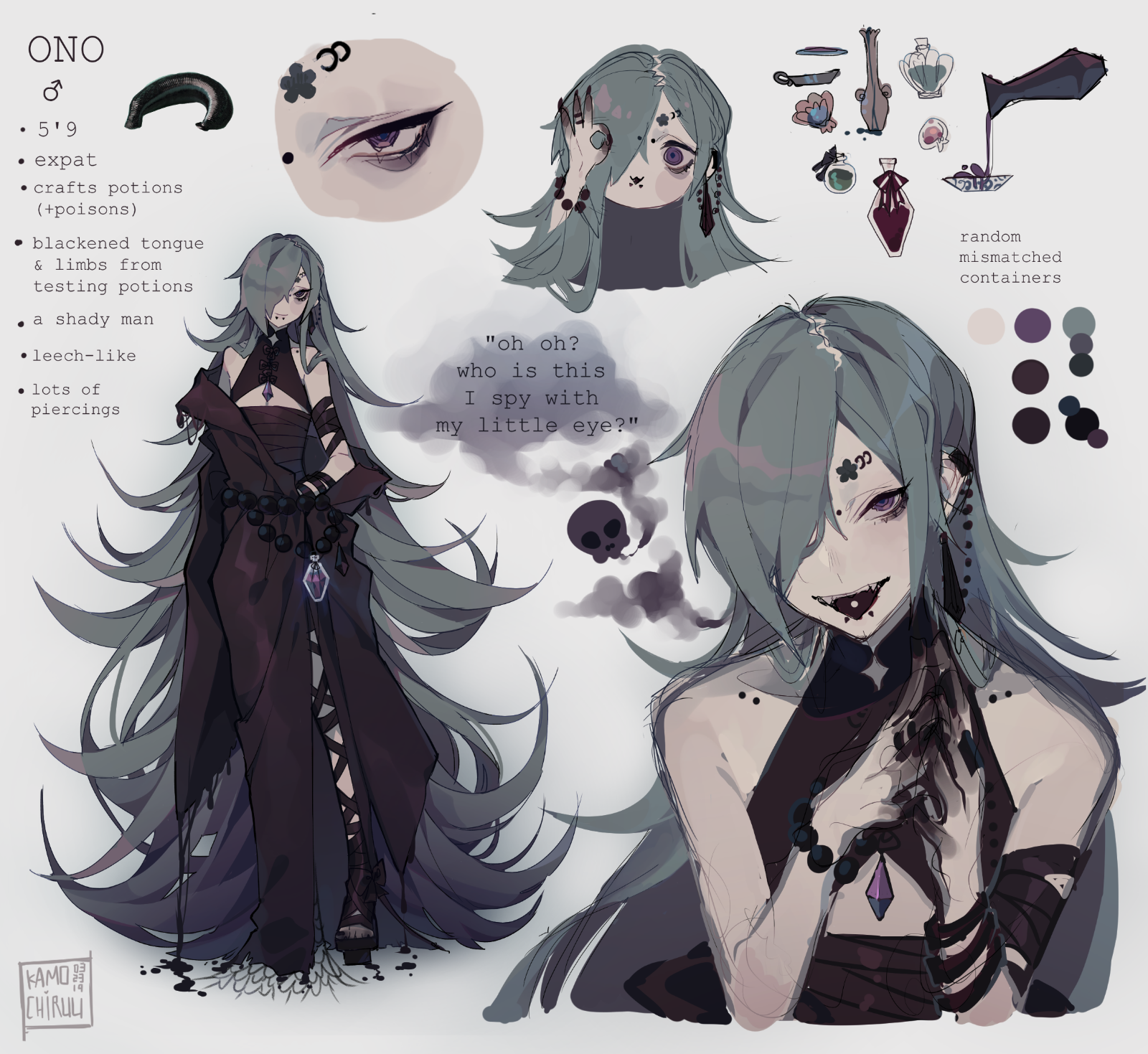
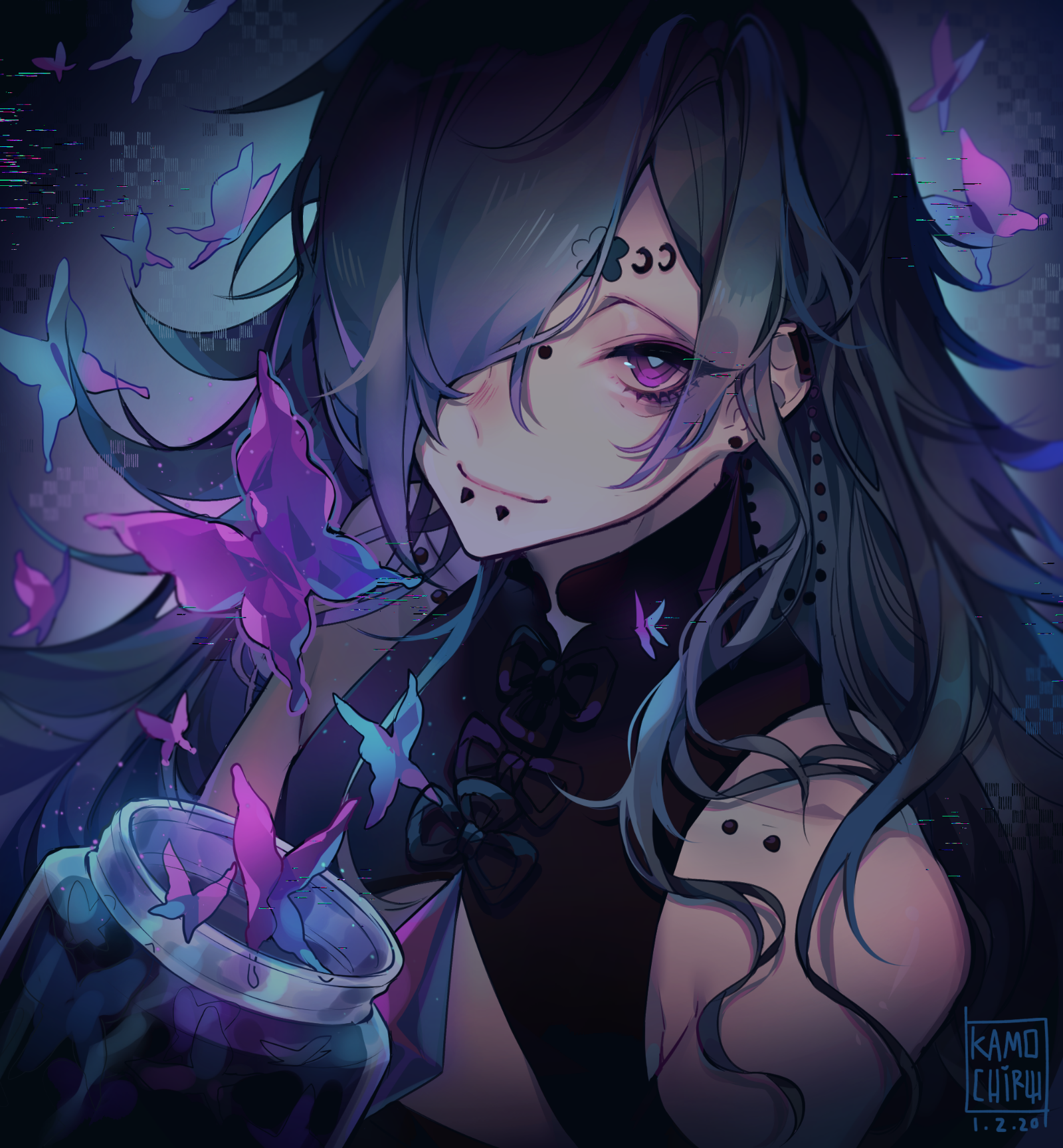
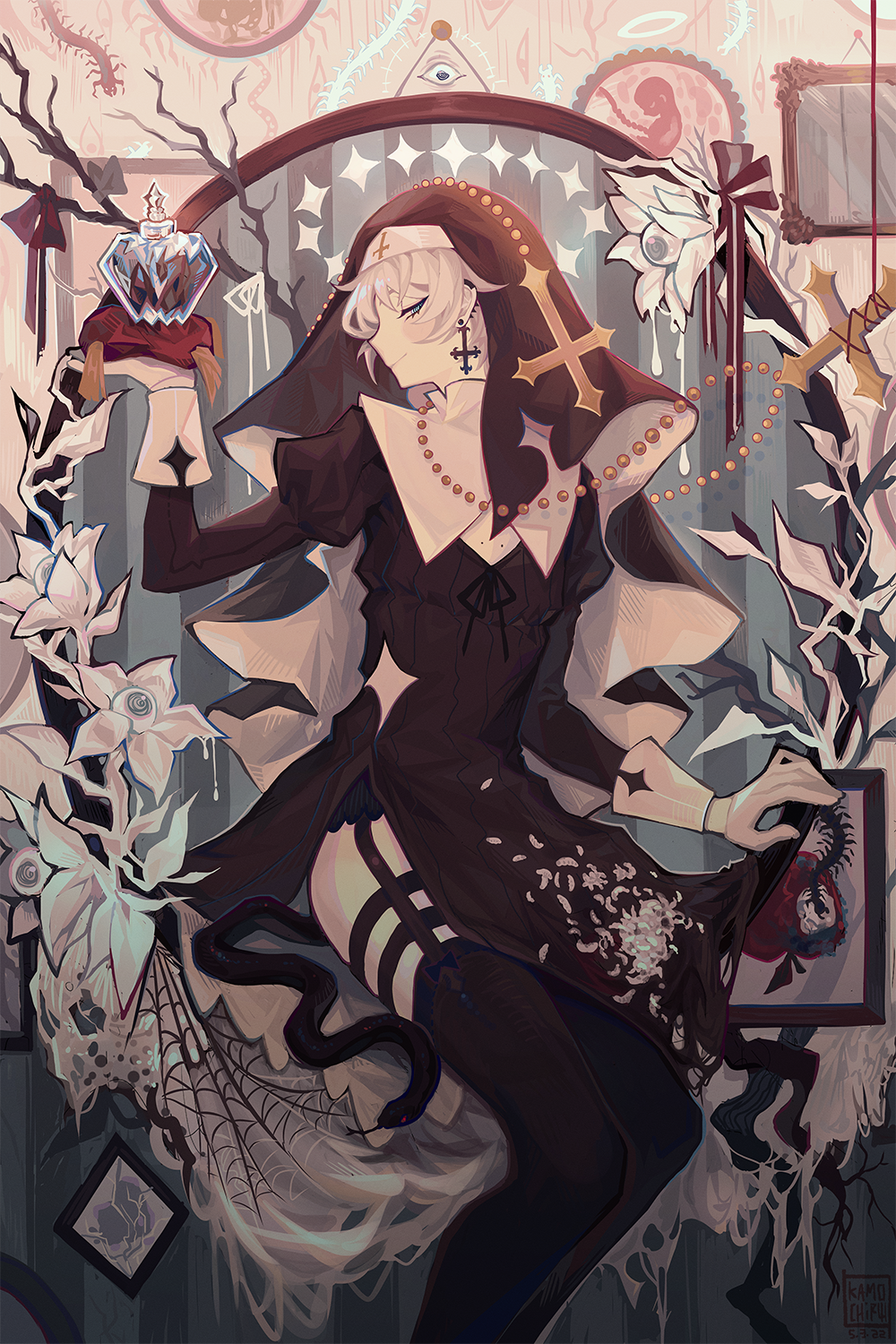
Participate In Discussions